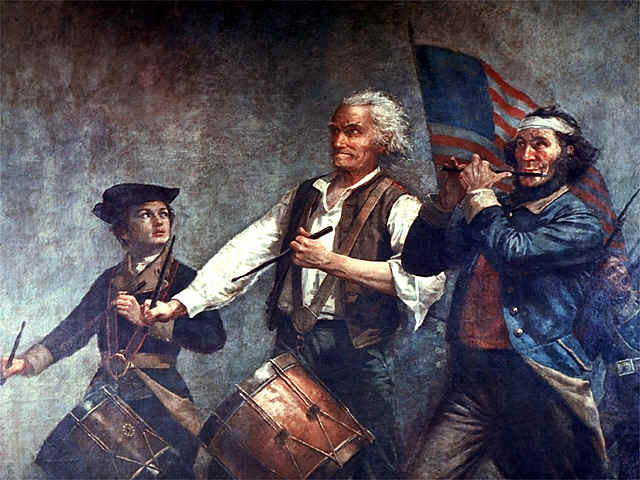1. Mercantilism is an economic theory
that holds the prosperity of a nation depends upon its supply of capital, and
that the global volume of trade is "unchangeable."
2. Capitalism is an economic system in which the means of production
are all or mostly privately owned and operated for profit, and in which
investments, distribution, income, production and pricing of goods and services
are determined through the operation of a market economy.

.jpg)
Basically the difference is.... in mercantilism, the country can only trade with
one country.
- An example, Great Britain is the mother country of the
American Colonies.
- The Colonies could only trade with Great Britain and no
one else.
- Great Britain (mother
country) was benefitted by an
unlimited supply of raw materials, it reduced the need for imported goods,
exports only came to the mother country, and porfits were made.
- The colonies were affected by less profits, exporting
more than they import, couldn't trade with anyone else, and limited
importing.
- Capitalism, however, is usually considered to involve
the right of individuals and groups of individuals acting as "legal
persons" or corporations to trade capital goods, labor, land and
money.
THE DIFFERENCE:
- Mercantilism is the economic theory that colonies exist
solely for the benefit of the mother country (back in the day of colonial
rule). Trade with only one place/country. They make small
profits.
- Capitalism is all privately owned companies trading with
whomever they choose. They usually make huge profits.
*-*-*-*-*-*-*-*-*-*-*-*-*-*-*-*-*-*-*-*-*-*-*-*-*-*-*-*-*-*-*-*-*-*-*-*-*-*-*-*-*-
In the 17th and 18th century,
before industrial capitalism really takes hold. Mercantilism contains the idea that wealth is finite, so control
over specie, or bullion, is the primary goal of all early imperial economies.
This means that countries want to sell as much as possible, rather than release
bullion through buying products.
- This is the driving force behind
possessing colonies during this period.
- Colonies are seen as the places
where the imperial powers gain raw materials.
- They then transform the raw
materials and sell them back to the colonies.
- This is a great way to secure
trade and to block the influence of competition.
- Actually, it’s an attempt to
eliminate competition altogether, though it doesn’t always work.
Nevertheless, the British government formally
authorizes the Board of Trade to oversee trade with the American colonies in 1699. What the board came
up with over the next several decades was of a series of acts or laws known
collectively as the
Navigation Acts.
The Navigation Acts
- In order to fully eliminate competition, this
means that the British can’t allow the colonial subjects to produce their
own finished products.
- We see this in 1699, when the British
ban colonial Americans from producing finished textiles.
- Remember that the idea is that the Americans
grow the cotton or shear the wool; then the textiles are made in Britain,
to be sold back to the Americans at the rate desired by imperial trade
authorities.
- In 1732, the British also ban the
American hat-making industry, though they do ultimately ease some of
the restrictions there.
- In 1750, the British ban any iron
manufacturing in the Americas as well.
While the British perspective is understandable given the
economic theory of the period, we also see how frustrating this may be for
colonials.
People who were perfectly capable of making their own clothes,
their own ploughs, or their own hat had to purchase British goods, which were
likely more expensive. There’s also the loss of local business and industry
activity that could stimulate growth in a given area.
 |
The Lure of French Molasses
- These
restrictions however didn’t always discourage the colonists from trade
with outsiders.
- In
fact, the restrictions probably prompted it much of the time.
- One area where the American colonists had significant freedoms
early on was in shipping, where they were allowed not only to possess
vessels, but to transfer or carry product aboard them.
- So American traders were always seeking good deals where
they could find them. French
molasses was a
particularly good deal, and the Americans started buying it often.
- As the British wanted the Americans to trade principally
with them, the American lust for
French molasses didn’t make the British Board of Trade extremely happy.
- So the British government passed the Molasses Act (1733) which placed a duty, or special tax, on all barrels of
French molasses that entered American ports.
- Rather than act as a discouragement, the act prompted many
ship captains, particularly in New England, to start smuggling the
molasses in, and this became very big business for many men.
*-*-*-*-*-*-*-*-*-*-*-*-*-*-*-*-*-*-*-*-*-*-*-*-*-*-*-*-*-*-*-*-*-*-*-*-*-*-*-*-*-
- The British policy of colonialism in and its other
political and economic policies in America sparked the change of attitude towards the 'mother country' and a struggle for independence by the colonists and
settlers.
- The colonists were made to feel like second-class citizens and their views and wishes ignored by the mother
country.
- The American colonists resented their exploitation by the
'mother country'.
- American colonists had taken huge risks by emigrating to
America, leaving their homes and country for an unknown and dangerous new
life in the colonies.
- Colonists were looking for religious freedom and new
opportunities devoid of the class systems they had left in their 'mother
country'.
- Their loyalty and ties to the 'mother country' decreased
leading to a quest for equality which led to the American War of
Independence in 1775 and the establishment of the United States of
America.
*-*-*-*-*-*-*-*-*-*-*-*-*-*-*-*-*-*-*-*-*-*-*-*-*-*-*-*-*-*-*-*-*-*-*-*-*-*-*-*-*-*


